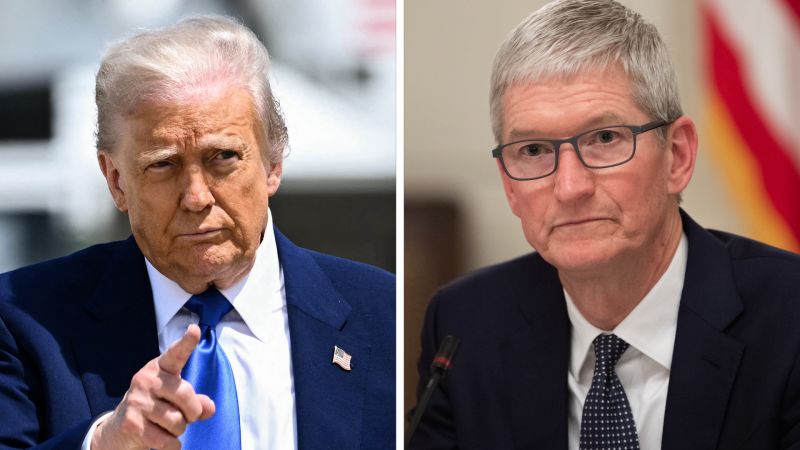
Former President Donald Trump’s trade policies had a significant impact on U.S. companies, most notably Apple, amid a broader tariff confrontation with China. As part of his administration’s trade strategy, Trump imposed sweeping tariffs on hundreds of billions of dollars’ worth of Chinese imports. These measures, aimed at countering unfair trade practices and reducing the U.S. trade deficit with China, also had unintended consequences for American technology giants.
Apple, a major consumer electronics company with deep manufacturing ties to China, faced the possibility of increased costs on products imported from the region. The company had lobbied against certain tariffs, given that many of its key products, such as iPhones and MacBooks, are assembled in Chinese factories. Trump’s tariffs initially covered a wide range of consumer and industrial goods, sparking fears within the tech community of higher costs for both companies and consumers.
Despite potential economic concerns, Trump maintained a firm stance, arguing that a tough approach toward China was necessary to level the playing field and protect U.S. intellectual property rights. He claimed that the tariffs would ultimately strengthen America’s economy by encouraging companies to bring manufacturing back to the United States.
While some of the tariffs were ultimately delayed or excluded after industry feedback—including some that would have directly impacted Apple’s products—Trump’s trade war left a lasting influence on global supply chains and trade relations.
As trade tensions between the U.S. and China continue to evolve under subsequent administrations, the impact of the Trump-era policies remains a focal point in discussions about economic nationalism, globalization, and the future of U.S. manufacturing.
Source: https:// – Courtesy of the original publisher.








